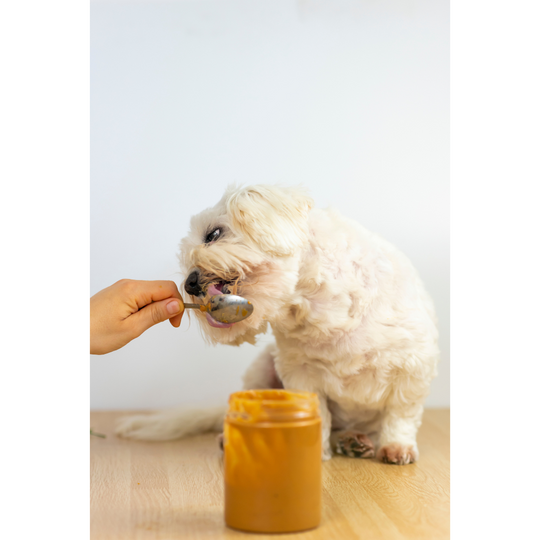Is Peanut Butter Safe for Dogs? A Guide for Pet Owners

Is Peanut Butter Safe for Dogs? A Guide for Pet Owners
Peanut butter has become a popular treat for dogs, often used as a reward or hidden inside toys to keep them entertained. But is peanut butter truly safe for our furry friends? The short answer is yes, as long as it's given in moderation and free from certain harmful ingredients. Let’s break down the benefits of peanut butter for dogs, how to choose the right type, and some tips for feeding it safely.
The Benefits of Peanut Butter for Dogs
Peanut butter isn’t just a tasty treat for dogs; it also provides some valuable nutrients. Here’s a look at a few benefits:
- Protein Power: Peanut butter is rich in protein, which is important for muscle development and energy.
- Healthy Fats: Natural peanut butter contains heart-healthy fats, which support a shiny coat and provide energy.
- Vitamins and Minerals: Peanut butter is packed with vitamins E and B6, niacin, magnesium, and potassium, all of which support various functions in your dog’s body.
Choosing the Right Peanut Butter for Your Dog
Not all peanut butters are dog-safe, so here are some important things to keep in mind when selecting one:
-
Xylitol-Free: The most crucial point! Xylitol, a common sugar substitute, is highly toxic to dogs and can be found in many “sugar-free” or “low-calorie” peanut butters. Even a small amount of xylitol can cause a severe drop in blood sugar and liver damage in dogs.
-
Limit Sugar and Salt: While dogs can tolerate some natural sugars, too much added sugar or salt is unhealthy. Look for peanut butter that contains only peanuts (and possibly a bit of salt) to avoid unnecessary additives.
-
Avoid Artificial Additives: Steer clear of peanut butters with artificial flavors, preservatives, or hydrogenated oils, which can cause digestive issues or add unhealthy fats to your dog’s diet.
How Much Peanut Butter is Safe?
Peanut butter should be given in moderation. A good rule of thumb is:
- Small dogs: About 1/2 teaspoon to 1 teaspoon occasionally
- Medium dogs: 1 teaspoon to 1 tablespoon occasionally
- Large dogs: Up to 1 tablespoon occasionally
Because of its calorie content, peanut butter can add up quickly, so be mindful to use it as a treat rather than a regular snack. As with all new treats, start with a small amount and observe for any signs of digestive upset or allergies.
Fun and Safe Ways to Feed Peanut Butter to Dogs
Peanut butter can be more than just a tasty treat. Here are a few ways to incorporate it into your dog’s routine for a fun, engaging snack:
- Kong Toys: Fill a Kong toy with peanut butter and freeze it for an entertaining, long-lasting treat.
- Training Treats: Use a small dab of peanut butter as a high-value reward during training sessions.
- Dog-Friendly Recipes: Try making dog treats or “pupcakes” at home using peanut butter as an ingredient.
- On Medication: Hide pills or other medications in a small amount of peanut butter to make dosing easier.
Signs of Peanut Butter Overload
Though rare, dogs can be allergic to peanuts. Signs of peanut allergies in dogs include itchiness, swelling, and digestive upset. If you notice any of these symptoms, discontinue feeding peanut butter and consult your veterinarian. Additionally, be cautious with peanut butter intake in dogs prone to pancreatitis or those on a weight management plan.
In Conclusion
Peanut butter can be a safe and enjoyable treat for dogs when given responsibly and in moderation. Always choose xylitol-free peanut butter with minimal ingredients, and use it to bond with your dog, make treat time extra special, or help with training. Remember that, like any treat, peanut butter should only make up a small part of your dog’s overall diet. By choosing wisely and feeding responsibly, you and your pup can enjoy this classic treat safely!
